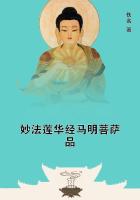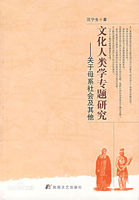They gloried in their unsullied names their characters were above suspicion. Any violation of the marriage vow was almost unknown;an unfaithful wife was infamous. The ordinary life of a castle was that of isolation, which made women discreet, self-relying; and free from entangling excitements. They had no great pleasures, and but little society. They were absorbed with their duties, and contented with their husbands' love. The feudal castle, however, was not dull, although it was isolated, and afforded few novelties.
It was full of strangers, and minstrels, and bards, and pedlars, and priests. Women could gratify their social wants without seductive excitements. They led a life favorable to friendships, which cannot thrive amid the distractions of cities. In cities few have time to cultivate friendships, although they may not be extinguished. In the baronial castle, however, they were necessary to existence.
And here, where she was so well known, woman's worth was recognized. Her caprices and frivolities were balanced by sterling qualities,--as a nurse in sickness, as a devotee to duties, as a friend in distress, ever sympathetic and kind. She was not exacting, and required very little to amuse her. Of course, she was not intellectual, since she read but few books and received only the rudiments of education; but she was as learned as her brothers, and quicker in her wits. She had the vivacity which a healthy life secures. Nor was she beautiful, according to our standard. She was a ruddy, cheerful, active, healthy woman, accustomed to exercise in the open air,--to field-sports and horseback journeys. Still less was she what we call fashionable, for the word was not known; nor was she a woman of society, for, as we have said, there was no society in a feudal castle. What we call society was born in cities, where women reign by force of mind and elegant courtesies and grace of manners,--where woman is an ornament as well as a power, without drudgeries and almost without cares, as at the courts of the Bourbon princes.
Yet I am not certain but that the foundation of courtly elegance and dignity was laid in the baronial home, when woman began her reign as the equal of her wedded lord, when she commanded reverence for her courtesies and friendships, and when her society was valued so highly by aristocratic knights. In the castle she became genial and kind and sympathetic,--although haughty to inferiors and hard on the peasantry. She was ever religious. Religious duties took up no small part of her time. Christianity raised her more than all other influences combined. You never read of an infidel woman when chivalry flourished, any more than of a "strong-minded" woman.
The feudal woman never left her sphere, even amid the pleasures of the chase or the tilt. Her gentle and domestic virtues remained with her to the end, and were the most prized. Woman was worshipped because she was a woman, not because she resembled a man. Benevolence and compassion and simplicity were her cardinal virtues. Though her sports were masculine, her character was feminine. She yielded to man in matters of reason and intellect, but he yielded to her in the virtues of the heart and the radiance of the soul. She associated with man without seductive spectacles or demoralizing excitements, and retained her influence by securing his respect. In antiquity, there was no respect for the sex, even when Aspasia enthralled Pericles by the fascinations of blended intellect and beauty; but there was respect in the feudal ages, when women were unlettered and unpolished. And this respect was alike the basis of friendship and the key to power. It was not elegance of manners, nor intellectual culture, nor physical beauty which elevated the women of chivalry, but their courage, their fidelity, their sympathy, their devotion to duty,--qualities which no civilization ought to obscure, and for the loss of which no refinements of life can make up.
Thus Chivalry,--the most interesting institution of the Middle Ages, rejoicing in deeds of daring, guided by honor and renown, executing enterprises almost extravagant, battling injustice and wrong, binding together the souls of a great fraternity, scorning lies, revering truth, devoted to the Church,--could not help elevating the sex to which its proudest efforts were pledged, by cherishing elevated conceptions of love, by offering all the courtesies of friendship, by coming to the rescue of innocence, by stimulating admiration of all that is heroic, and by asserting the honor of the loved ones, even at the risk of life and limb. In the dark ages of European society woman takes her place, for the first time in the world, as the equal and friend of man, not by physical beauty, not by graces of manner, not even by intellectual culture, but by the solid virtues of the heart, brought to light by danger, isolation, and practical duties, and by that influence which radiated from the Cross. Divest chivalry of the religious element, and you take away its glory and its fascination. The knight would be only a hard-hearted warrior, oppressing the poor and miserable, and only interesting from his deeds of valor. But Christianity softened him and made him human, while it dignified the partner of his toils, and gave birth to virtues which commanded reverence.
The soul of chivalry, closely examined, in its influence over men or over women, after all, was that power which is and will be through all the ages the hope and glory of our world.
Thus with all the miseries, cruelties, injustices, and hardships of feudal life, there were some bright spots showing that Providence never deserts the world, and that though progress may be slow in the infancy of races, yet with the light of Christianity, even if it be darkened, this progress is certain, and will be more and more rapid as Christianity achieves its victories.
AUTHORITIES.















